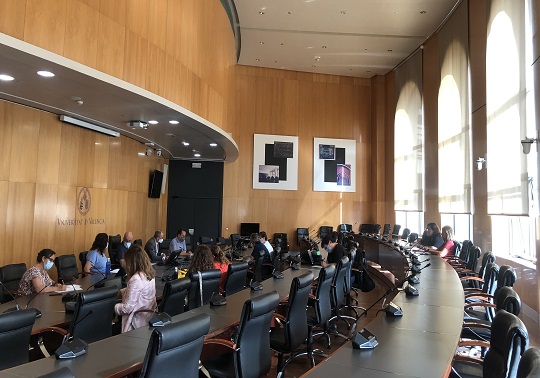The process of drawing up the 4th Equality Plan for the Universitat de València begins
- Equality Unit
- July 28th, 2022

The process for the design, negotiation and approval of the 4th Equality Plan of the Universitat de València has started this Monday, 25th, with the agreement of the Negotiating Board of the Universitat de València to appoint the members of the negotiating committee, which will aim to begin the process of negotiation of the diagnosis and the equality plan.
Since the enactment of Royal Decree Law 6/2019, of 1st March, on urgent measures to guarantee equal treatment and opportunities between women and men in employment, the negotiation of the equality plan, and its prior diagnosis, is mandatory for those entities obliged, legally or conventionally, to draw up and apply an equality plan, as is the case of the Universitat de València and the rest of the public universities.
In this sense, the agreement of the Negotiating Table members of the Negotiating Committee. It will have equal representation, with four representatives from the workers and four from the institutional side. From the trade union side, each of the trade unions represented on the Negotiating Committee shall appoint one titular person and one substitute. From the institutional side, the committee will be composed of the following persons: Ernest Cano Cano, Vice-Principal for Academic Regulations and Teaching Staff; Helena Rausell Guillot, Vice-Principal for Equality, Diversity and Inclusive Policies; José Ramírez Martínez, Deputy General Manager of Human Resources and Administrative Organisation and Rosa Mochales San Vicente, director of the Equality Unit.
This committee will face the challenge of setting in motion the process of drawing up the 4th Equality Plan and, specifically, of drawing up and negotiating a diagnosis that includes a series of matters that are the subject of negotiation, in accordance with article 46.2 of Organic Law 3/2007, of 22nd March, such as the following: Selection and recruitment process, Professional classification, Training, Professional promotion, Working conditions, including gender pay audit; Co-responsible exercise of personal, family and work life rights; Under-representation of women, Remuneration and Prevention of sexual and gender-based harassment.
















